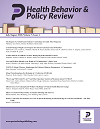
Organic Food Consumption: Application of Means-End Theory
Objective: We examined the phenomenon of organic food consumption based on Means-End Theory (MET). Methods: This phenomenon was examined in 2 manners. First, a qualitative study was conducted to explore the meaning of organic foods and understand how organic foods are used to achieve
organic shoppers' goals and values. Second, an empirical study tested and validated the Means-End Theory. Overall, 512 completed responses were used for the data analyses. Results: The analysis of structural equation modeling (SEM) supported 5 of 7 hypotheses testing the relationships among
the 4 constructs (ie, attributes, consequences, values, and behavioral outcomes). The environmental benefits were not associated with personal values and personal values were not associated with word-of-mouth (WOM). Conclusion: MET is applicable to our empirical study of organic food consumption.
Keywords: MEANS-END THEORY; ORGANIC FOOD; ORGANIC SHOPPER
Document Type: Research Article
Publication date: 01 March 2018
- Health Behavior and Policy Review is a rigorously peer-reviewed scholarly bi-monthly publication that seeks manuscripts on health behavior or policy topics that represent original research, including papers that examine the development, advocacy, implementation, or evaluation of policies around specific health issues. The Review especially welcomes papers that tie together health behavior and policy recommendations. Articles are available through subscription or can be ordered individually from the Health Behavior and Policy Review site.
- Editorial Board
- Information for Authors
- Submit a Paper
- Subscribe to this Title
- Terms & Conditions
- Associate Editors
- Institutional Subscription
- PDF Policy
- Ingenta Connect is not responsible for the content or availability of external websites
- Access Key
- Free content
- Partial Free content
- New content
- Open access content
- Partial Open access content
- Subscribed content
- Partial Subscribed content
- Free trial content